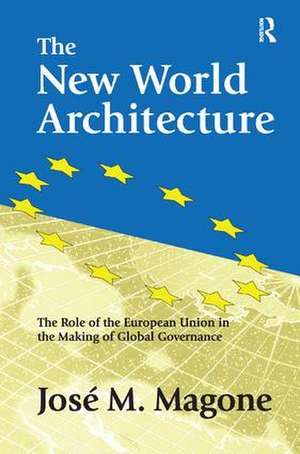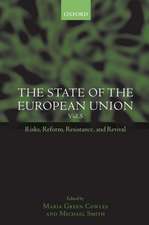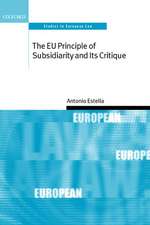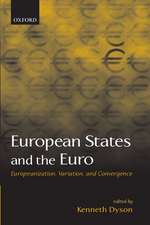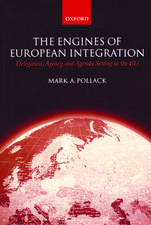The New World Architecture: The Role of the European Union in the Making of Global Governance
Autor Jose Magoneen Limba Engleză Paperback – 12 oct 2017
| Toate formatele și edițiile | Preț | Express |
|---|---|---|
| Paperback (1) | 299.52 lei 6-8 săpt. | |
| Taylor & Francis – 12 oct 2017 | 299.52 lei 6-8 săpt. | |
| Hardback (1) | 768.30 lei 6-8 săpt. | |
| Taylor & Francis – 31 iul 2005 | 768.30 lei 6-8 săpt. |
Preț: 299.52 lei
Preț vechi: 341.57 lei
-12% Nou
57.32€ • 59.62$ • 47.32£
Carte tipărită la comandă
Livrare economică 14-28 aprilie
Specificații
ISBN-10: 113851649X
Pagini: 349
Dimensiuni: 152 x 229 mm
Greutate: 0.45 kg
Ediția:1
Editura: Taylor & Francis
Colecția Routledge
Locul publicării:Oxford, United Kingdom
Cuprins
Descriere
The collapse of the bipolar world sustained by the United States and the former Soviet Union led to a power vacuum in the 1990s that the European Union has only reluctantly begun to fill. It is under pressure to take over important international tasks and roles in order to develop a new equilibrium in the system of international relations. After 2000, reforms were undertaken so that the European Union could deal more efficiently with the tasks the new political system had acquired since the early 1990s. With respect to its international role, reorganization of the EU's external relations department was high on the list. The New World Architecture explores the contribution that the European Union is making to the emerging global governance system. It discusses the theoretical and historical aspects of European integration within the framework of the emerging regional EU and global governance systems. It explores three regimes of governance that are contributing to holding together the new emerging EU multilevel governance system. None of these is complete; all are partial. They include the political regime of governance; the socioeconomic regime of governance; and the territorial regime of governance. The author assesses the impact of the European Union on global politics. The Mediterranean and Latin America represent regions in which the European Union is investing considerable effort in order to create new forms of cooperation. Magone argues that within the next twenty-five years global governance may and should emerge as the new and reconfigured stable system of international relations. In this system, the European Union is and will remain the most advanced regional system. This volume will be of interest to specialists, scholars, and students of European Politics and the European Union.
